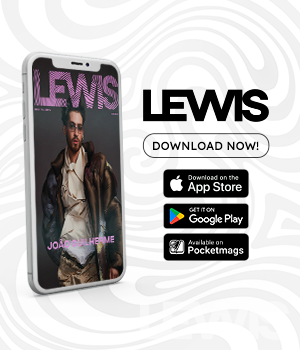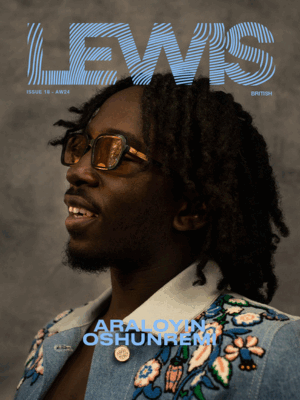
When Monogamy Isn’t the Answer: How to Redefine Commitment for You (Without Guilt)
We’ve been taught to measure love by its endurance one person, one story, one happy ending. But what happens when that structure no longer fits the way we live, feel, or connect? For decades, monogamy has been the silent foundation of what society calls success in love. Yet in 2025, more people are beginning to question whether that blueprint, drawn centuries ago, still makes sense in a world that’s more open, fluid, and emotionally complex than ever before.
This isn’t about rejecting commitment. It’s about reimagining it. Redefining what devotion looks like when honesty matters more than performance, and when love becomes a conversation instead of a contract. The truth is: there’s no universal formula for connection. There’s only the courage to ask what works and the maturity to answer without guilt.
The Weight of the Blueprint
The traditional model of monogamy is beautiful in theory loyalty, safety, shared goals. But it’s also historically loaded. Monogamy wasn’t born out of romance; it was born out of ownership, lineage, and control. For centuries, it served social stability more than emotional compatibility. Today, we live longer, move faster, and experience more relationships than any generation before us yet we’re still trying to fit our modern lives into an ancient mould.
In the 2020s, that mould is cracking. Surveys reveal that more than 40% of millennials and Gen Z respondents believe monogamy isn’t the only valid model for love. The conversation isn’t about rejecting tradition it’s about upgrading it. For some, that means exploring open relationships; for others, it’s simply acknowledging that loyalty and exclusivity aren’t synonyms. The goal remains the same: connection that feels authentic.
When we strip monogamy of its moral hierarchy, we begin to see it for what it really is a choice, not a virtue. And choice is where true intimacy begins.
The Rise of Conscious Relationships
The new landscape of love is less about structure and more about consciousness. Ethical non-monogamy, relationship anarchy, and polyamory have moved out of whispered subcultures and into honest conversation. But this shift isn’t about how many people you sleep with it’s about how honestly you communicate.
A conscious relationship, monogamous or not, starts with transparency. It’s the courage to say: “I love you, and I want to design this with you, not inherit it.” It means admitting your needs and your limits, your fantasies and fears, without assuming your partner should already know them.
In this framework, commitment becomes an act of continual choice, not obligation. You don’t stay because you must you stay because you choose to. That’s not instability; that’s maturity.
And yes, it takes work. Radical honesty can be uncomfortable. But as psychotherapist Esther Perel often says, “The quality of our relationships determines the quality of our lives.” Conscious connection requires us to reframe love not as possession, but as partnership two people agreeing to build something fluid, intentional, and alive.
Deprogramming the Guilt
If you’ve ever felt a pang of guilt for wanting something different you’re not alone. The moment you question monogamy, you risk being labelled disloyal, indecisive, or afraid of commitment. But often, those feelings come from social conditioning, not moral truth.
We’ve been raised to equate exclusivity with love, and to see desire for others as betrayal. But attraction doesn’t disappear when you fall in love; it evolves. The question isn’t whether you’ll notice other people it’s how you’ll handle that awareness.
Non-monogamy isn’t for everyone, but neither is pretending your needs don’t exist. Real intimacy comes from integration accepting the full spectrum of your emotions rather than suppressing them. That doesn’t mean acting on every impulse; it means being honest about them.
Guilt dissolves when honesty begins. Once you stop trying to meet an inherited ideal, you start creating a truth that fits you not the version of you the world expects.
Designing Your Own Commitment
If there’s one thing the past decade of relationship research has proven, it’s that communication is the new fidelity. The couples who thrive whether monogamous, open, or undefined are the ones who talk more than they assume.
To redefine commitment, start here:
-
Get radically clear about your values. What matters most exclusivity, honesty, freedom, growth?
-
Create your own rulebook. Don’t borrow someone else’s template. Build boundaries that feel supportive, not restrictive.
-
Check in, not out. Regularly re-evaluate the terms of your relationship. It’s not weakness it’s wisdom.
-
Detach ego from love. Jealousy and control stem from fear of loss. Replace control with curiosity.
-
Prioritise kindness over correctness. The goal isn’t to “win” an argument it’s to understand.
Modern love is less about permanence and more about presence. You’re not failing because you want something different; you’re evolving because you’re asking why.
The Myths About Open Relationships
Let’s be clear open relationships aren’t an escape hatch for the bored or broken. When done with care, they’re among the most demanding forms of partnership because they rely on deep communication, self-awareness, and humility.
The myths are endless:
-
“It’s just an excuse to cheat.” → In truth, it’s the opposite. Cheating thrives on secrecy; openness thrives on honesty.
-
“It’s emotionally unstable.” → Only if communication is absent.
-
“It never lasts.” → Many monogamous relationships don’t either. Longevity has never been the only measure of success.
The reality? Open relationships can be fulfilling but only if both partners share the same emotional vocabulary and boundaries. The moment it becomes one-sided, it collapses. The power lies in choice and consent, not chaos.
Redefining Loyalty
Loyalty is not about limitation. It’s about presence, consistency, and care. You can be loyal in an open relationship just as you can be emotionally absent in a monogamous one.
In redefining loyalty, we begin to see it as something deeper than exclusivity. It’s the decision to show up, even when it’s hard. To listen when you’re triggered. To keep the emotional space clean between you and your partner.
Think of it this way: love is a practice, not a promise. It’s what you do daily, not what you declare once. Whether you share your life with one person or several, the integrity you bring defines the connection not the category you assign it.
The Emotional Education We Missed
Most of us never learned how to talk about sex, boundaries, or emotional needs without shame. We were handed fairy tales instead of frameworks. So when modern love starts to shift, we’re left improvising.
That’s where emotional education comes in learning to regulate, communicate, and listen without defensiveness. It’s about asking, “What do you need to feel safe?” instead of assuming love alone fixes everything.
In the new relationship era, emotional intelligence is the ultimate aphrodisiac. Empathy, self-awareness, and humour will take you further than any aesthetic ever could.
The Future of Love
So, what’s next? The future of love won’t be defined by structure but by sincerity. The old labels monogamous, poly, open will matter less than the depth of connection and the clarity of consent.
We’ll see more couples designing hybrid models that blur the lines: emotionally exclusive but sexually open; polyfidelitous yet domestic; solo but committed. These combinations might look unconventional, but they stem from the same question: what does love mean to us?
Ultimately, the evolution of relationships mirrors our evolution as people messy, bold, unfinished. The goal isn’t perfection; it’s participation.
Final Verdict
Redefining commitment isn’t about rebellion. It’s about alignment. Monogamy still works beautifully for many people, but it should be a conscious choice, not an unconscious inheritance.
Love, at its best, is freedom with responsibility a dance between two (or more) people who choose each other, not out of fear or habit, but because they see, hear, and trust one another.
So maybe the question isn’t “Is monogamy dead?”
Maybe it’s “What kind of love feels most alive to you?”

THE THURSDAY INTIMACY DROP
New every Thursday on LEWIS


















